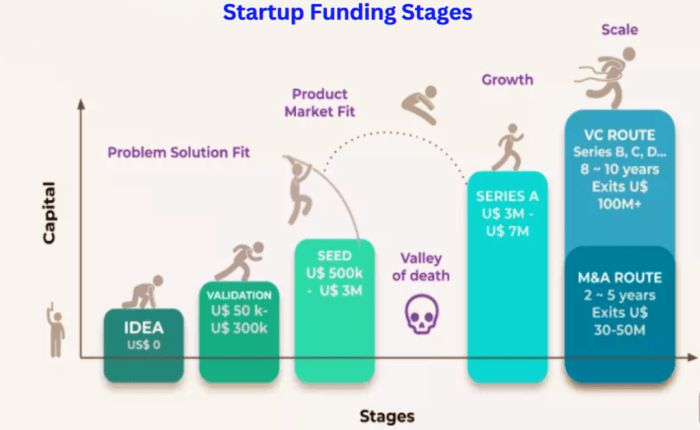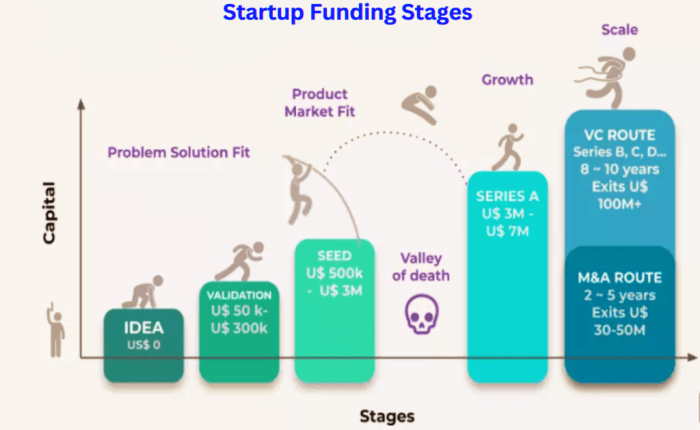6 ways eu startups can cut spending during the recession – 6 Ways EU Startups Can Cut Spending During Recession: Navigating economic downturns can be a challenge for any business, especially for startups. But with a strategic approach and a focus on efficiency, EU startups can not only survive the recession but also emerge stronger.
This article explores six key strategies that EU startups can implement to cut spending and navigate the economic storm. From optimizing operations to seeking alternative funding sources, these practical tips offer a roadmap for navigating the recession and ensuring long-term success.
Optimize for Efficiency

In today’s economic climate, EU startups must prioritize efficiency to weather the storm. Streamlining operations, automating tasks, and eliminating redundancies can significantly reduce spending and improve profitability.
Tools and Technologies for Efficiency
EU startups can leverage a variety of tools and technologies to enhance efficiency and cut costs.
- Project Management Software:Tools like Asana, Trello, and Monday.com help teams organize projects, track progress, and improve collaboration. This can reduce wasted time and resources, leading to cost savings.
- Automation Software:Platforms like Zapier and Automate.io can automate repetitive tasks, freeing up employees for more strategic work. For example, automating data entry, social media posting, or email marketing can save valuable time and resources.
- Communication and Collaboration Tools:Slack, Microsoft Teams, and Zoom enable seamless communication and collaboration within teams, regardless of location. This can improve productivity and reduce the need for in-person meetings, leading to cost savings on travel and accommodation.
- Customer Relationship Management (CRM) Systems:CRMs like Salesforce and HubSpot help businesses manage customer interactions, track sales pipelines, and analyze customer data. This can streamline sales processes, improve customer satisfaction, and ultimately reduce costs associated with customer acquisition and retention.
Analyzing Processes for Optimization
To identify areas for efficiency improvements, EU startups should conduct a thorough analysis of their processes.
- Process Mapping:This involves visually mapping out the steps involved in each process, identifying bottlenecks and redundancies. This helps identify areas where automation or streamlining can be implemented.
- Data Analysis:Analyzing key performance indicators (KPIs) and metrics can provide valuable insights into process efficiency. For example, tracking customer acquisition costs, conversion rates, and employee productivity can highlight areas where improvements are needed.
- Employee Feedback:Gathering feedback from employees who work directly with processes can reveal valuable insights into areas for improvement. Employees often have firsthand knowledge of inefficiencies and can suggest practical solutions.
Negotiate Better Deals

In today’s challenging economic climate, EU startups must prioritize cost optimization. One effective strategy is to negotiate better deals with suppliers, vendors, and landlords. This can significantly reduce expenses and free up resources for growth and innovation.
Leveraging Market Competition
Understanding the competitive landscape is crucial for securing favorable terms. EU startups can leverage market competition by researching alternative suppliers and vendors, comparing pricing and service offerings, and highlighting the value they bring to potential partners. For instance, a startup developing a sustainable packaging solution could leverage the growing demand for eco-friendly products to negotiate better pricing with suppliers of recycled materials.
Utilizing Industry Trends
Staying informed about industry trends and technological advancements can give startups a strategic advantage in negotiations. By demonstrating knowledge of emerging technologies or industry-specific challenges, startups can position themselves as valuable partners and secure more favorable terms. For example, a startup specializing in artificial intelligence could leverage the increasing adoption of AI in various sectors to negotiate better deals with clients, highlighting their expertise and the potential for significant cost savings.
Benefits of Long-Term Contracts
Long-term contracts can provide stability and predictable costs, especially in volatile economic conditions. By establishing long-term partnerships with reliable suppliers, startups can secure consistent pricing and avoid the risk of sudden price increases. This predictability allows startups to better forecast expenses and allocate resources effectively.
Strategic Partnerships
Strategic partnerships can offer mutually beneficial arrangements, allowing startups to access resources, expertise, and networks that might be otherwise unavailable. For example, a startup developing a new software solution could partner with a marketing agency to leverage their expertise and reach a wider audience.
Such partnerships can lead to cost-sharing opportunities and access to a larger customer base, ultimately contributing to greater financial stability.
Manage Resources Wisely

In times of economic uncertainty, startups need to be especially mindful of their resource allocation. Every euro spent needs to be carefully considered, and every resource utilized efficiently. This involves optimizing the use of human capital, equipment, and office space, as well as implementing strategies for reducing energy consumption and waste.
By carefully managing resources, EU startups can maintain their operations, achieve their goals, and emerge stronger from the recession.
Optimizing Human Capital
Human capital is a startup’s most valuable asset. Ensuring that this resource is used effectively is crucial for success. This involves:
- Cross-training employees:By equipping employees with diverse skills, startups can increase flexibility and reduce reliance on specialized personnel. This also empowers employees to take on a wider range of tasks, leading to increased job satisfaction and reduced hiring costs.
- Utilizing remote work arrangements:Remote work can be a cost-effective solution, reducing overhead expenses associated with office space and commuting. It also allows startups to access a wider talent pool and increase employee productivity by offering greater flexibility.
- Optimizing team structures:Regularly reviewing team structures and responsibilities can identify areas for streamlining and eliminating redundancies. This can involve re-allocating tasks, merging roles, or creating new teams to optimize efficiency.
Optimizing Equipment and Office Space
The efficient utilization of equipment and office space is crucial for reducing costs and maximizing productivity.
- Leveraging cloud computing:Cloud-based services offer scalable solutions for storage, software, and computing power, eliminating the need for expensive hardware and infrastructure. This can significantly reduce capital expenditures and operational costs.
- Sharing equipment:Implementing a system for sharing equipment, such as printers, scanners, and laptops, can reduce the overall cost of purchasing and maintaining these assets. This is particularly beneficial for startups with limited resources.
- Optimizing office space:Regularly reviewing office space utilization and adopting flexible work arrangements can reduce the need for large, expensive office spaces. This could involve utilizing co-working spaces, hot-desking arrangements, or implementing hybrid work models.
Reducing Energy Consumption and Waste, 6 ways eu startups can cut spending during the recession
Implementing sustainable practices can significantly reduce operational costs and contribute to environmental responsibility. This can include:
- Investing in energy-efficient equipment:Using energy-efficient appliances, lighting, and heating systems can reduce energy consumption and lower utility bills. This can also contribute to a more sustainable business model.
- Implementing recycling and waste reduction programs:Establishing clear procedures for recycling and reducing waste can save money on waste disposal and promote a more environmentally conscious work environment. This can involve composting organic waste, utilizing reusable containers, and implementing a paperless office policy.
- Encouraging sustainable practices:Promoting sustainable practices among employees through educational initiatives and incentives can lead to a more conscious and cost-effective workplace. This could involve encouraging employees to use public transportation, carpool, or cycle to work.
Tracking and Analyzing Resource Utilization
Regularly tracking and analyzing resource utilization is essential for identifying areas for improvement and ensuring optimal efficiency. This involves:
- Implementing resource tracking tools:Using software solutions for tracking resource utilization can provide valuable insights into areas for optimization. This can include tracking employee time, equipment usage, and energy consumption.
- Analyzing data and identifying trends:Regularly analyzing resource utilization data can identify trends and patterns that highlight areas for improvement. This could involve identifying inefficient processes, underutilized equipment, or excessive energy consumption.
- Implementing corrective measures:Based on the analysis of resource utilization data, startups can implement corrective measures to optimize efficiency. This could involve streamlining processes, replacing inefficient equipment, or implementing energy-saving initiatives.
Embrace Remote Work
The current economic climate presents a unique opportunity for EU startups to rethink their operational models and embrace remote work. Not only does it offer significant cost savings, but it also allows for greater flexibility and talent acquisition from a wider pool.
By adopting a remote work model, startups can significantly reduce costs associated with office space, utilities, and employee commuting. This is particularly beneficial during a recession, when budgets are tight and every penny counts.
Managing Remote Teams Effectively
Effective management of remote teams is crucial for maintaining productivity and achieving business goals. This requires a shift in leadership style and the implementation of robust communication and collaboration tools.
Investigate the pros of accepting take a look at vendor tech from eurobike in frankfurt in your business strategies.
- Clearly defined roles and responsibilities:Establish clear expectations for each team member, ensuring that everyone understands their individual tasks and how they contribute to the overall team objective.
- Regular communication:Frequent communication is essential for maintaining a strong team dynamic and ensuring that everyone is on the same page. This can be achieved through daily stand-up meetings, weekly check-ins, and regular project updates.
- Utilizing collaboration tools:Leveraging technology like project management software, video conferencing platforms, and instant messaging apps facilitates seamless collaboration and information sharing among remote team members.
- Building trust and fostering a sense of community:Creating a sense of community and trust is vital for remote teams. This can be achieved through virtual team-building activities, regular social interactions, and fostering a culture of open communication and support.
Seek Funding Alternatives
The current economic climate has made securing traditional venture capital funding more challenging for EU startups. However, alternative funding sources can provide much-needed capital to navigate the recession. These options can be a lifeline for startups seeking to maintain operations and continue their growth trajectory.
Government Grants
Government grants are non-repayable funds provided by public entities to support specific projects or initiatives. The European Union offers various grant programs designed to promote innovation, entrepreneurship, and economic development. These grants can be a valuable source of funding for startups operating in sectors like technology, renewable energy, and social enterprises.
- Horizon Europe:The EU’s flagship research and innovation program offers grants for projects across various fields, including health, environment, and digital technologies.
- European Innovation Council (EIC):The EIC provides funding for startups with high-growth potential, supporting their development and commercialization of innovative products and services.
- COSME:This program supports small and medium-sized enterprises (SMEs) in areas such as innovation, internationalization, and access to finance.
To access these grants, startups must submit compelling proposals that demonstrate the project’s feasibility, impact, and alignment with the program’s objectives. A strong business plan and a clear understanding of the grant requirements are essential for success.
Crowdfunding Platforms
Crowdfunding platforms connect startups with individual investors who contribute small amounts of money in exchange for equity, rewards, or simply supporting the venture. This approach allows startups to raise capital from a broader audience while building a community around their product or service.
- Kickstarter:Popular for creative projects, Kickstarter allows startups to raise funds from backers in exchange for early access to products or exclusive rewards.
- Indiegogo:Offers a broader range of crowdfunding campaigns, including equity-based models, allowing startups to raise capital from investors.
- Seedrs:A platform focused on equity crowdfunding, connecting startups with investors who contribute capital in exchange for equity.
Effective crowdfunding campaigns require engaging marketing strategies, clear communication of the project’s value proposition, and a well-structured campaign timeline. Building a strong online presence and engaging with potential backers is crucial to attracting investments.
Angel Investors
Angel investors are high-net-worth individuals who invest in early-stage startups, typically in exchange for equity. They often bring valuable industry expertise, networks, and mentorship to startups.
- Business Angels Network Europe (BAN):A network of angel investors across Europe, providing access to funding and mentorship opportunities.
- European Business Angel Network (EBAN):A pan-European association of angel investors, offering resources and support for angel investors and startups.
- AngelList:A platform connecting startups with angel investors, providing a database of potential investors and resources for fundraising.
To attract angel investors, startups must develop a strong business plan that highlights the potential for high returns. A compelling pitch deck that concisely communicates the startup’s vision, market opportunity, and financial projections is essential for securing investment.
Prioritize Core Activities: 6 Ways Eu Startups Can Cut Spending During The Recession
In a recession, EU startups need to be laser-focused on their core business activities. This means eliminating non-essential projects, streamlining processes, and concentrating resources on what brings in revenue and drives growth. By prioritizing core activities, startups can maintain a competitive edge and weather the economic storm.
Identifying Core Activities
The first step is to identify what truly constitutes your core business activities. Ask yourself: What are the activities that directly contribute to your revenue generation and customer acquisition? What are the essential functions that keep your business running smoothly?
Once you have a clear understanding of your core activities, you can then begin to identify and eliminate non-essential projects. This might include:
- Marketing campaigns: If a particular campaign is not driving significant results, consider pausing or eliminating it.
- New product development: Focus on existing products and services that are already generating revenue. New product development can be put on hold or significantly scaled back.
- Research and development: While innovation is important, it might be necessary to reduce spending on R&D projects that are not directly tied to your core business.
- Administrative tasks: Streamline administrative processes and automate tasks wherever possible. This can free up resources and improve efficiency.
Setting Clear Priorities
Once you have identified your core activities, it’s crucial to set clear priorities. This involves ranking your activities based on their importance and potential impact on your business. This process can help you make strategic decisions about resource allocation and project management.
Here are some tips for setting clear priorities:
- Use the Pareto Principle: The Pareto Principle, also known as the 80/20 rule, suggests that 80% of your results come from 20% of your efforts. Identify the 20% of activities that drive 80% of your revenue and focus your resources on those.
- Use a prioritization matrix: A prioritization matrix can help you visually rank your activities based on their importance and urgency. This can provide a clear framework for making decisions about resource allocation.
- Regularly review and adjust priorities: Market conditions can change rapidly, so it’s important to regularly review and adjust your priorities based on new information and insights.
Staying Agile and Adaptable
In a recession, it’s essential to be agile and adaptable. Market conditions can change rapidly, and startups need to be able to respond quickly and effectively. This means being flexible in your approach, being willing to pivot if necessary, and constantly seeking opportunities to improve your business model.
Here are some tips for staying agile and adaptable:
- Embrace a culture of experimentation: Encourage your team to try new things, learn from their mistakes, and iterate quickly. This can help you identify new opportunities and adapt to changing market conditions.
- Be data-driven: Use data to inform your decisions and track the performance of your core activities. This will help you identify areas for improvement and make adjustments as needed.
- Build strong relationships with your customers: In a recession, customer loyalty becomes even more important. Focus on building strong relationships with your customers and providing excellent service.



